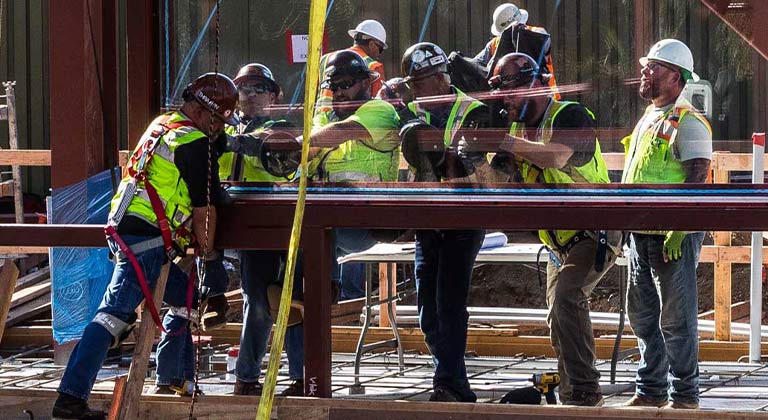
Your construction project is running behind, again. Your subcontractors have given all of the same old excuses, and maybe even concocted a few new ones as to why they need an extension. Your client is getting frustrated, and you’re forced to cover for a team that’s not delivering.
Is it time to consider new subcontractors?
As a general contractor, you likely rely on subcontractors to provide construction assistance on practically every project. Subcontractors not only help to reduce your crew’s workload, they also hold specialized knowledge and expertise regarding specific, highly technical pieces of the construction puzzle. As specialists, they are ostensibly more skilled and efficient than a generalist would be at completing these tasks, and their smaller team size allows them to work more quickly to get the job done.
Yet no matter how much work you outsource to subcontractors, it’s your company’s reputation that’s ultimately on the line. As the GC, it’s your responsibility to complete the overall project to the satisfaction of your customer, so it’s on you to ensure your subcontractors are producing quality work in a timely manner.
So what do you do if one of your outsourced teams is under-performing? While there’s no ‘good time’ to look for new subs, taking the time and effort to find a business that can better meet the needs of your project can potentially save you mountains of time, and earn you better completion rates down the line. So, how do you know when it’s time to make the call? What kind of subcontractors should you be looking for? What should you look for in a subcontractors? How do you meet qualified subcontractors?
We don’t claim to have all of the answers, but after nearly 75 years in the business, we’ve learned a thing or two about how to be a great business partner, subcontractor, and even friend. Here’s our best advice for how vet new subcontractors in order to protect your project, your customer, and your company’s reputation.
Eight Steps to Vet Subcontractors
1. Evaluate their past and current performance
Request references from their customer base, ask to see their licenses, accreditations, history, and then, check their references. Look for any public data on complaints or disputes. Ask for a referral at a contractor for whom they have done work. Next, search social media for independent, unbiased and unfiltered feedback.
2. Look at their current and backlog of work
It’s smart to make sure potential subcontractors can actually complete the work you need, one great way is ask subcontractors on your team who performs well if they would recommend someone and ask to be introduced. Another way is to request to examine a potential subcontractor’s log of previous, current, and future work. If the subcontractor seems too busy for your bid, your project size may be too large (or small) and they may not be a good fit.
3. Ask about their safety practices
Unsafe operations not only put the subcontractor in a dangerous position, they can also leave you, the GC, exposed to liability and potentially force an inspector to close the job site. That’s why it’s imperative to make sure any subcontractors you’re considering have clean or reasonable safety histories. They should also have ample safety protocols in place and a crew that is coached to prioritize safety. Ask how they keep their job site crew focused on safety without compromise. Ask for their EMR; this gives insight into the subcontractor’s safety history.
4. Inquire about the subcontractor’s employees
Ask the subcontractor about their team. Are they full-time or do they hire temp workers based on workload? Have they worked in construction before, or are they new to the industry? Does the subcontractor have the proper number of well-trained professionals required for the site? Do the workers have the right tools and reasonable workloads? Answers to these questions will determine whether the subcontractor is right for your job.
5. Validate bonding and insurance
Contractors are required to have bonding, and they must be fully insured, including worker’s compensation insurance. Reject any subcontractor that doesn’t have these minimum safety nets in place, as you could be held liable if there’s a problem.
6. Investigate the subcontractor’s financial health
If your job is large, you’ll want to make sure the subcontractor’s financials are healthy enough to handle the job. You don’t want their employees to walk off the site one day due to lack of payment, or an inability to purchase required materials. Request their annual contractor volume, two years of financial statements, and if your construction projects warrant it, total sales and net worth (you might have to sign a confidentiality agreement). Look for signs of poor health, like poor cash flow, a mountain of debt, or declining income.
7. Ask about their quality control process
In order to avoid rework and warranty work, you want your subcontractors to certify the quality of their materials and finished work. Every professional business should have a procedure in place to guarantee quality assurance. This procedure is rarely complex, but a successful business will have an answer to your questions.
8. Demand a written contract
Ask yourself, would you work on this construction project without a written agreement? Every scope of work should be bound by a contract that clearly describes your expectations, including the time frame, materials and payment arrangements. Describe what you will provide and what the subcontractor will provide in terms of materials, equipment, warranties, and cleanup.
Hiring a subcontractor is like hiring an employee: You want someone who will represent your business well without adding drama, stress, or financial burden. If you follow these steps, you’ll find the right candidate and build a lasting relationship.
